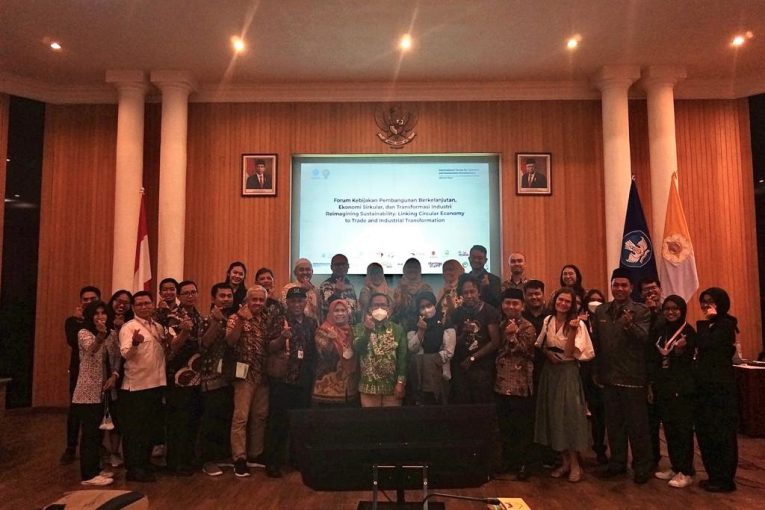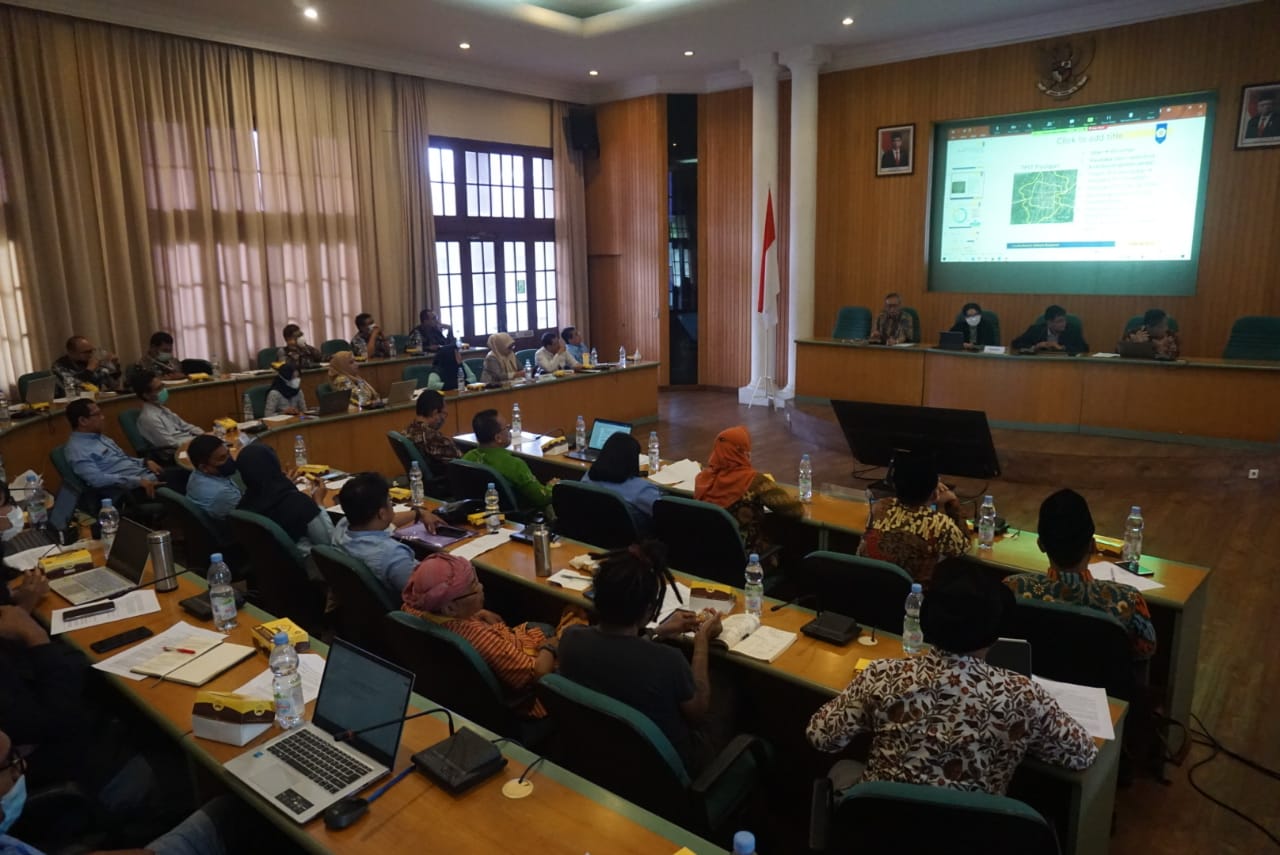
The Policy Forum was opened by the Dean of FISIPOL UGM, Dr. Wawan Mas’udi, and Head of CWTS UGM Dr. Riza Noer Arfani. Dr. Wawan and Dr. Riza emphasized the importance of learning from the community as the circular economy initiators in formulating policies. “There is no need for a perplexing theoretical framework, but we can learn from initiatives that are already rooted in the community,” said Dr. Wawan.
The first discussion session was handed with presentations from Dr. Werner Zdouc (Director of the Knowledge and Information Management, Academic Outreach and WTO Chairs Programme Division of the WTO), H.E. Dandy Iswara (Deputy Permanent Representative of the Republic of Indonesia II Geneva/Ambassador), Dr. M. Pramono Hadi, M.Sc. (Head of Center for Environmental Studies UGM) and Prof. Dr. Catur Sugiyanto, MA (Head of Center for Economic Democracy Studies UGM).
In his presentation, Dr. Werner Zdouc underlined the importance of a circular economy to replace the traditional economy that exploits resources and harms the environment. In the context of circular economy development in ASEAN, Latin America and the Caribbean (SEA-LAC) countries, Dr. Werner stressed the urgency of solving several issues such as the definition and classification of end-of-life products, conformity assessment procedures, licensing, assistance on trade issues, and trade-related capacity building.
Expanding on Dr. Werner’s topic, H.E. Dandy Iswara underlined how important it is for Indonesia to work together in implementing COP26 and the Paris Agreement amidst significant population growth. H.E. Dandy also stressed the collaboration of national and international efforts to achieve an efficient and fair implementation of a circular economy for every country.
Representing academics, Dr. M. Pramono Hadi, M.Sc. presented five main sectors that must be highlighted in low-carbon development planning, namely forestry, agriculture, energy and transportation, industry, and waste and garbage. Prof. Catur Sugiyanto, MA emphasized that aspects of institutional improvement, technology, and assistance are important in supporting the development of MSMEs that empower the community while also supporting the realization of a circular economy by the community.

The series of events were then filled with policy formulation sessions, where each party from regional representatives, communities and companies exchanged ideas and shared the efforts of each sector in regard to various circular economy policies and practices.
The Policy Forum was concluded with a material session from Prof. Daniel C. Esty of Yale University. By appreciating Indonesia’s G20 results and placing hopes on Indonesia’s leadership in ASEAN in 2023, Prof. Daniel emphasized three important elements in implementing a circular economy for Indonesia. First, it is necessary to improve and strengthen the policy framework at the global, national and sub-national levels. Second, a shift in business norms, ways of thinking, and facilitation in the financial and trade aspects is needed that is directed toward climate change action. Lastly, social movements from all levels of society and the government are needed to encourage the transition from a linear economy to a circular economy.
Ultimately, the Policy Forum resulted in an agreement in the formulation of circular economy regulations that are participatory and accommodative towards various aspirations. Some of the conclusions that emerge include: (1) the formation of regulations that are not merely top-down and minimally supervised but accompanied by multi-sectoral alternatives; (2) increasing research on intangible aspects such as lifestyle patterns; (3) the formation of a circular economy solution chart that maximizes elements of local customs, religion, education, culture, law, and the local economy.
It is hoped that the agreement will become material for the CWTS UGM policy roadshow in early 2023 which will firstly be focused on the KARTAMANTUL area (Yogyakarta City, Sleman Regency, and Bantul Regency).
